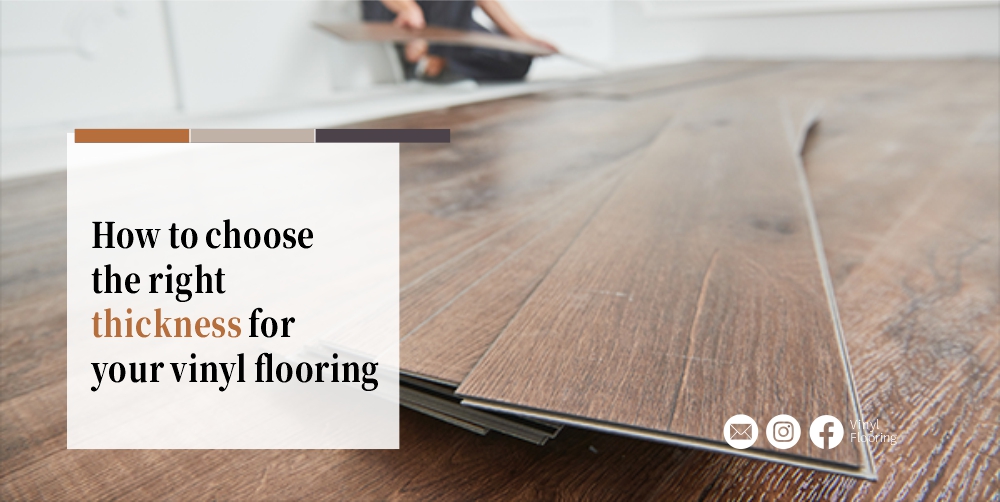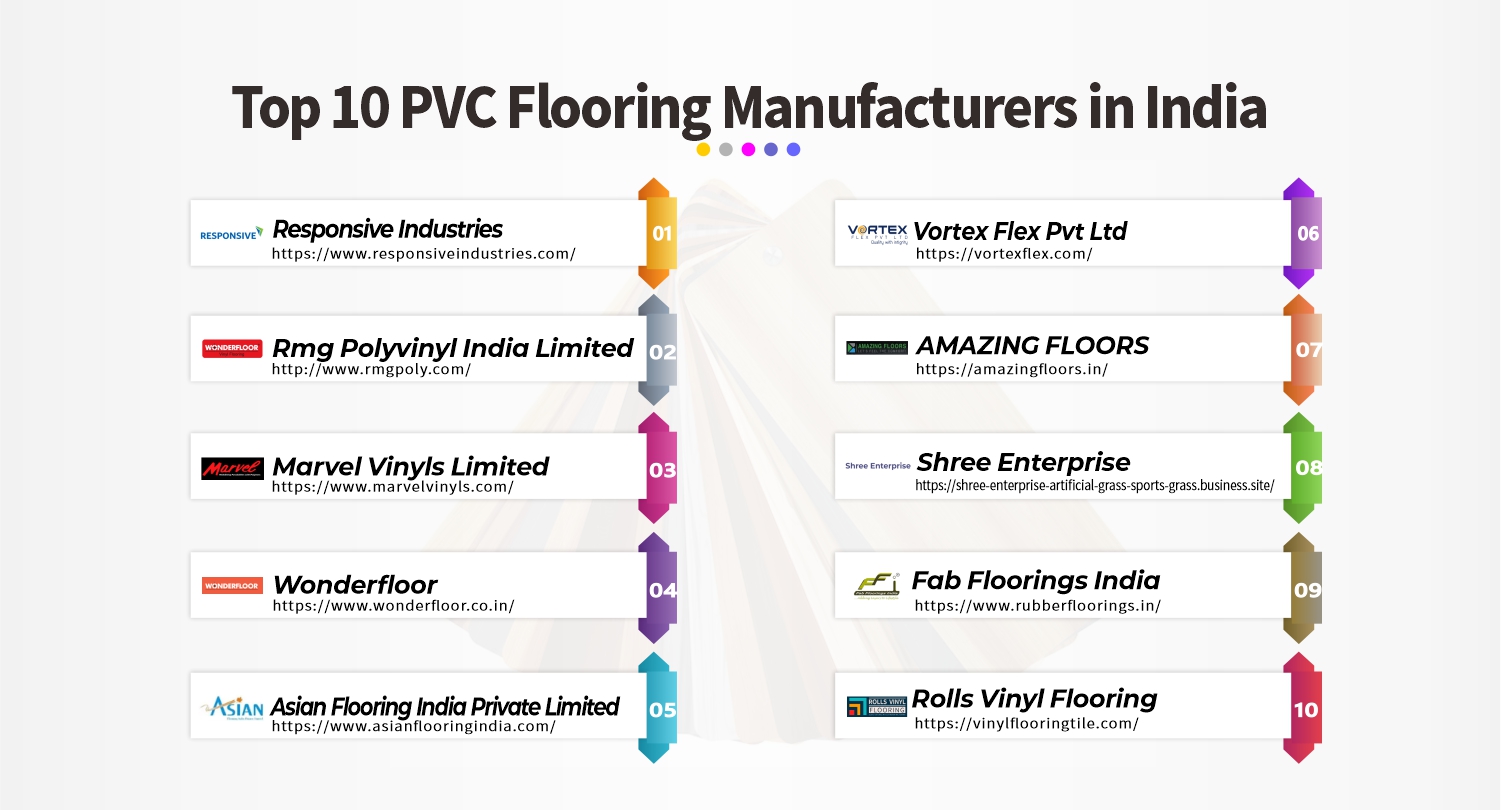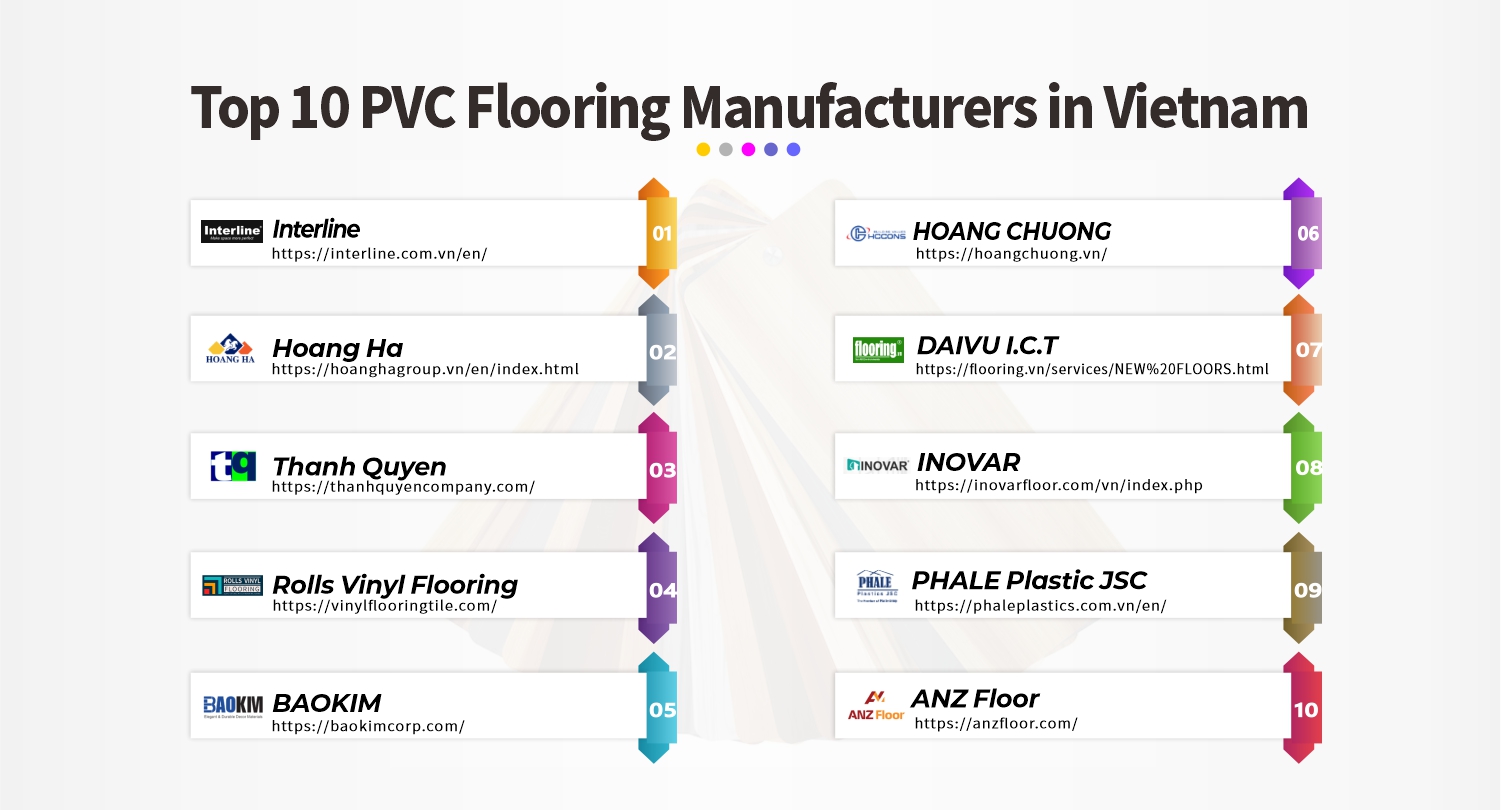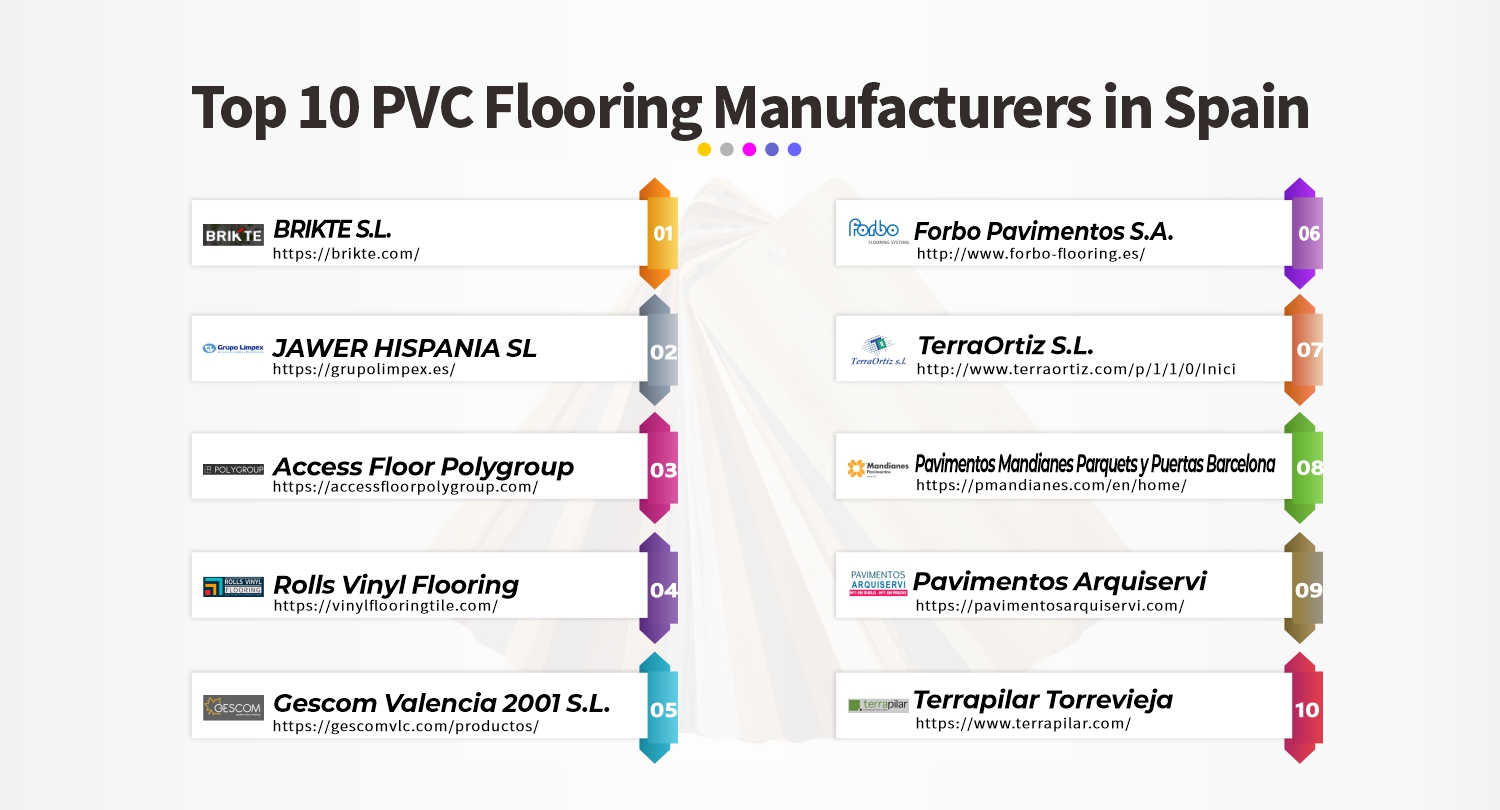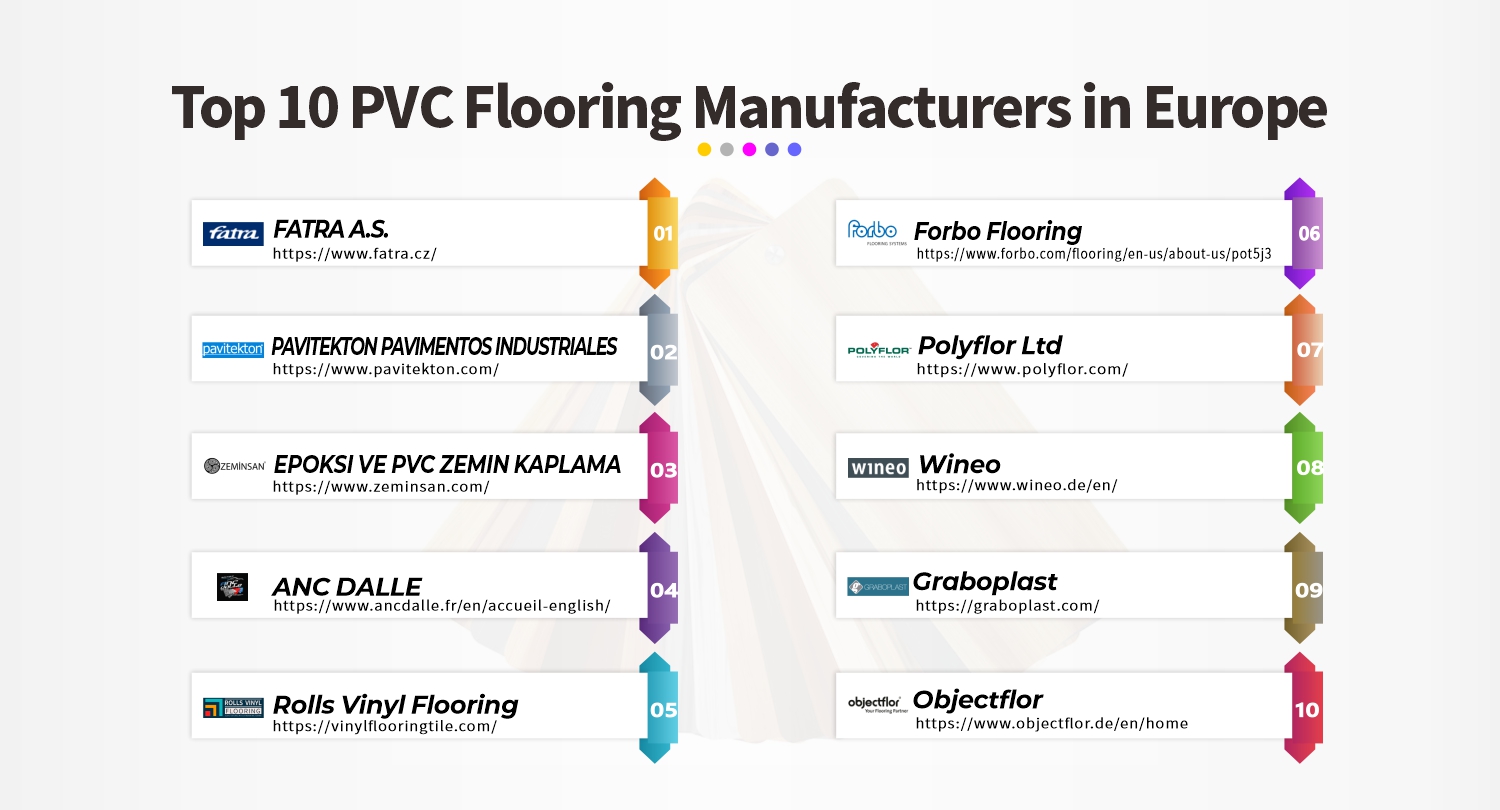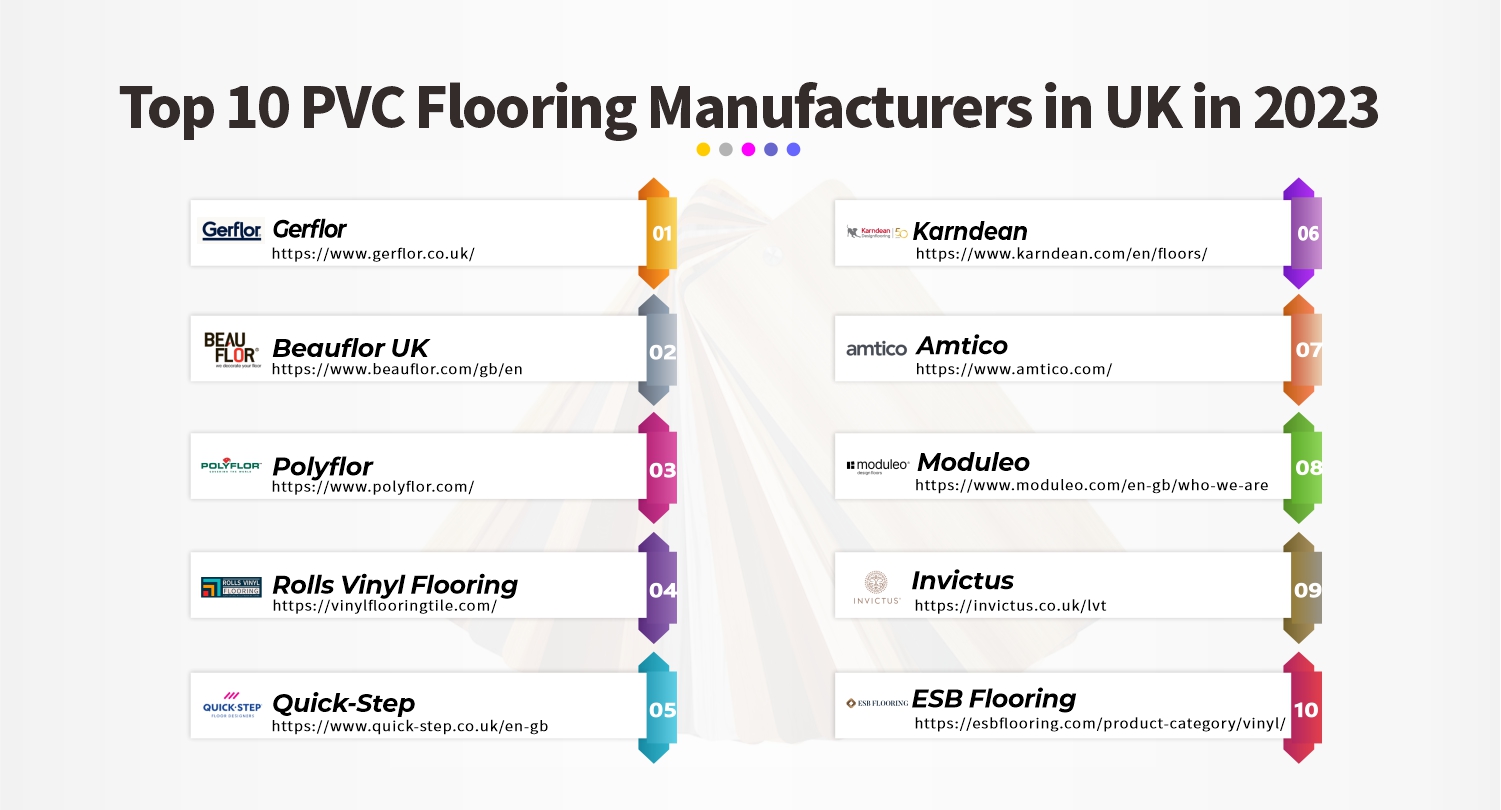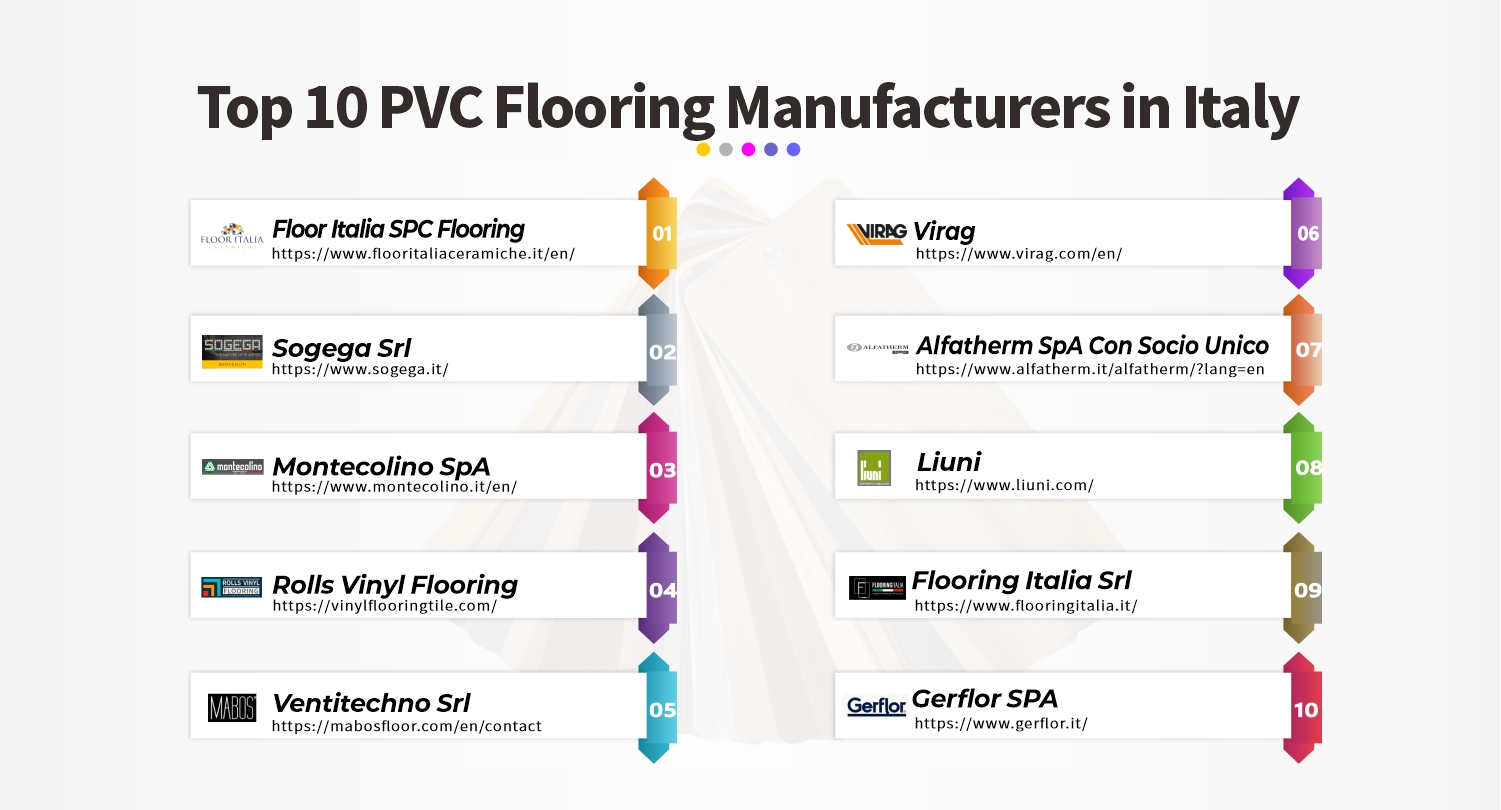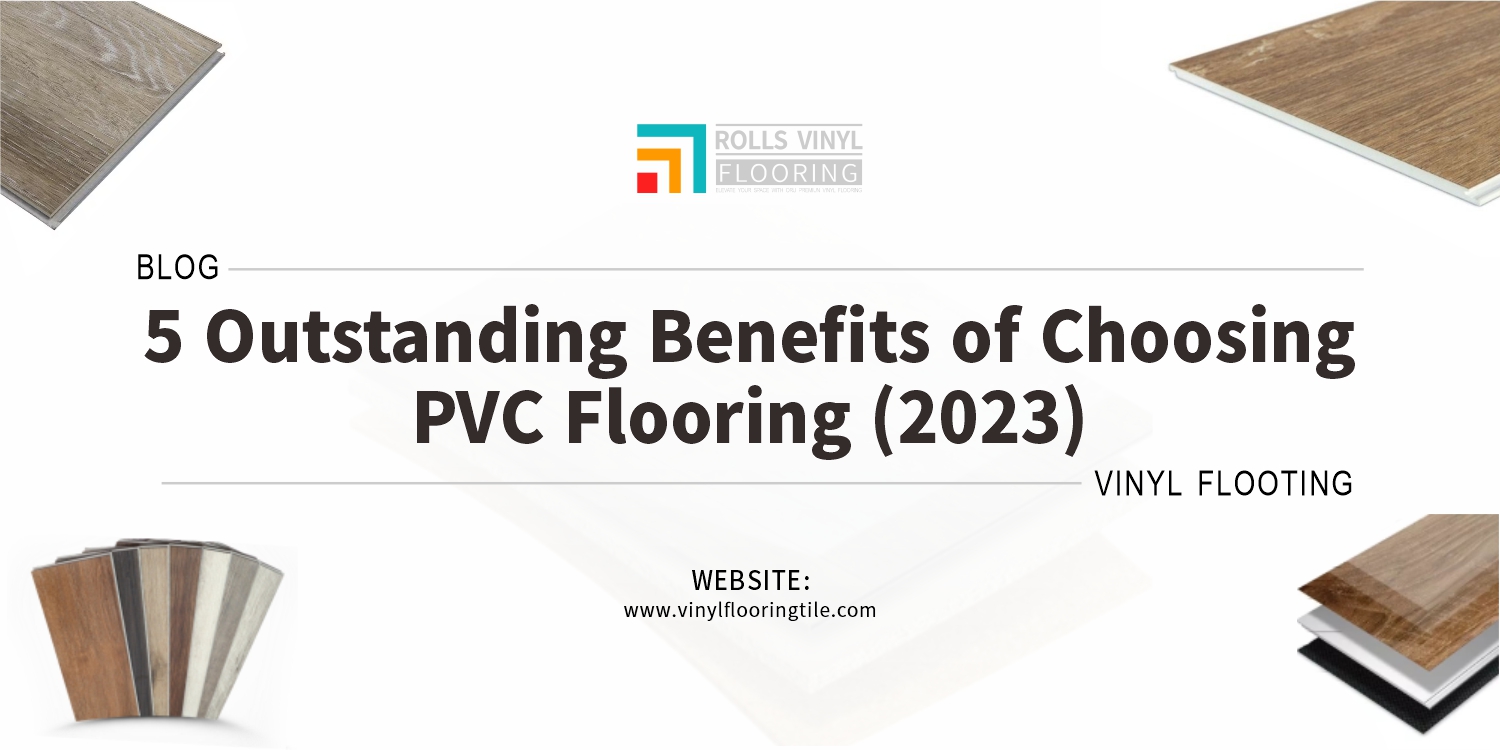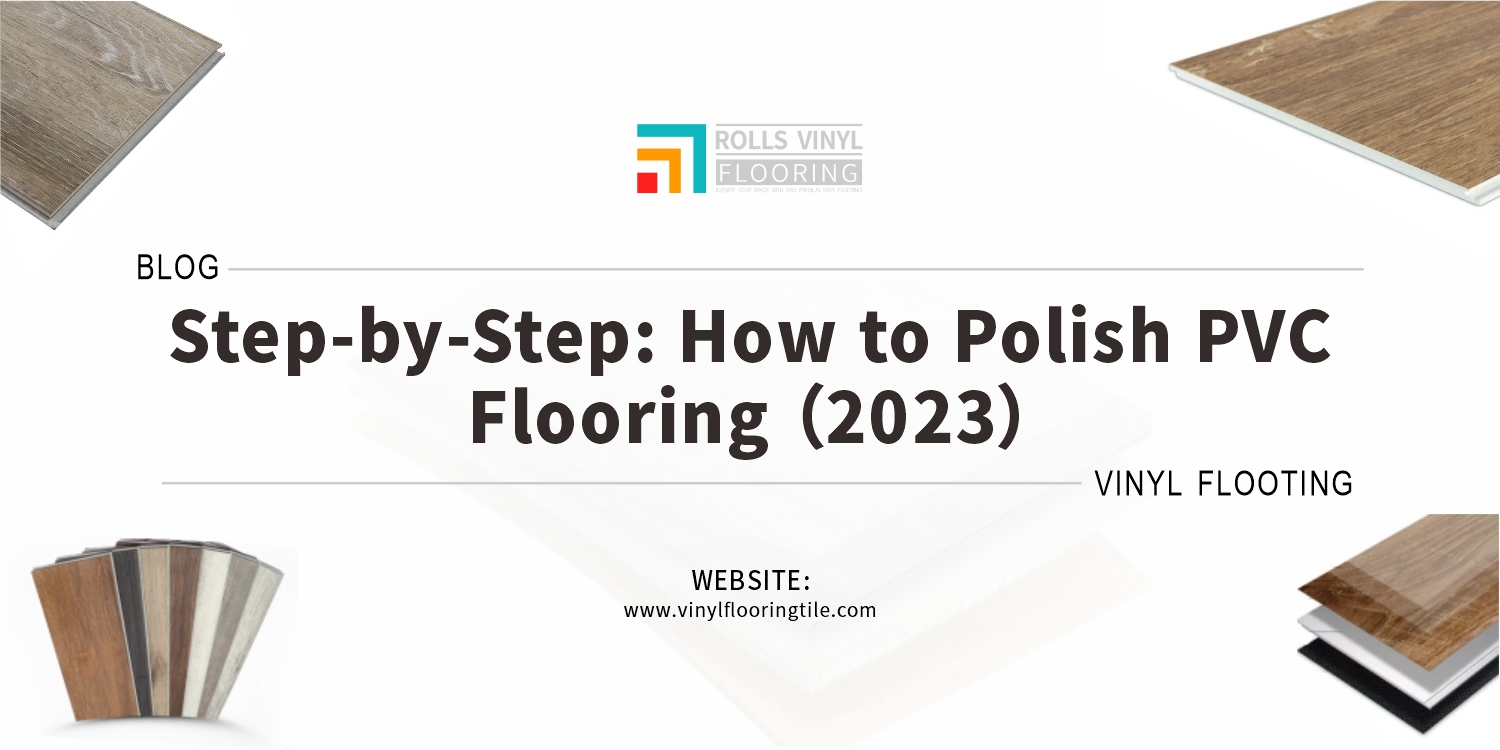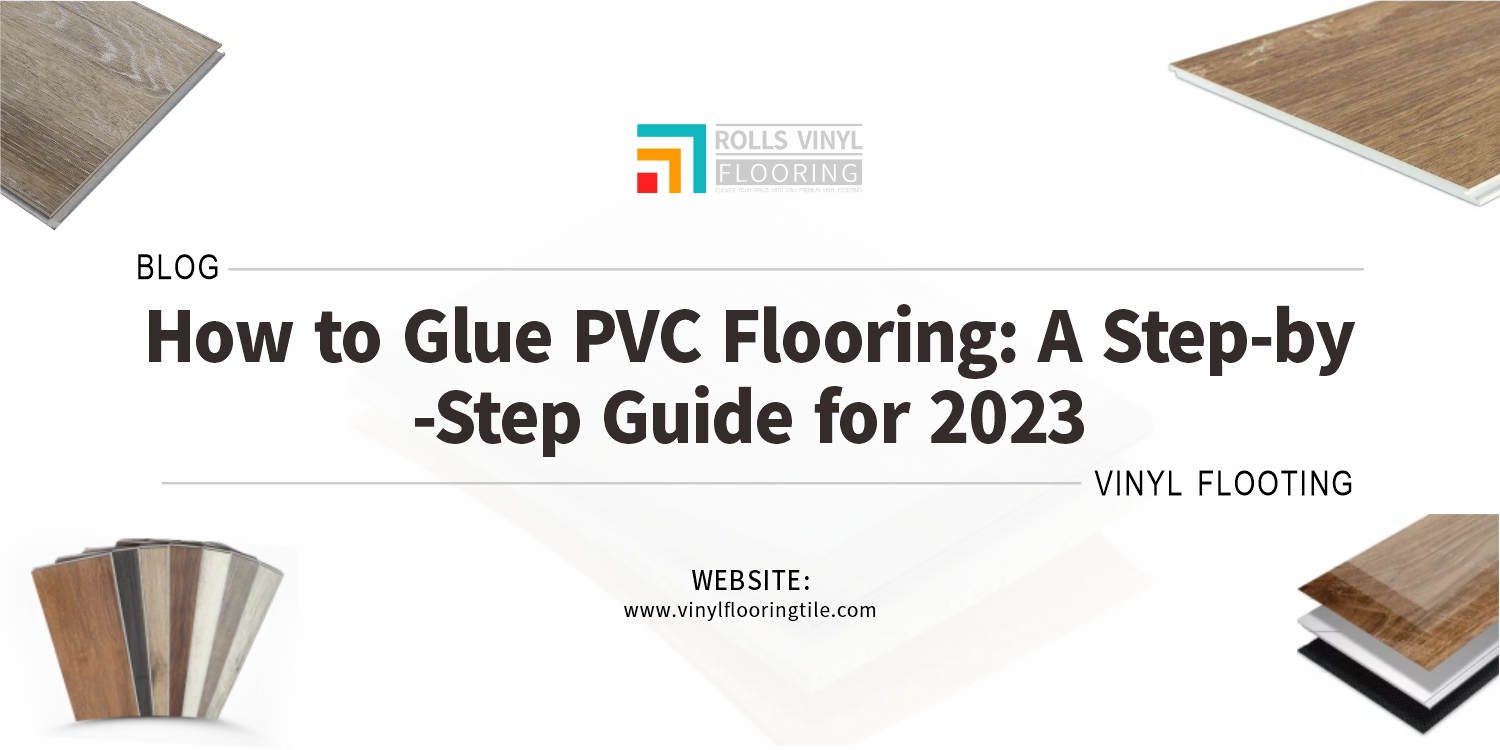Vinyl flooring thickness is a crucial consideration if you’re planning to install it. Vinyl flooring’s overall performance, comfort, and longevity can be impacted by its thickness. Choosing the ideal thickness for your purposes can be overwhelming with so many possibilities available. We’ll go over all you need to know in this tutorial so you can decide on the thickness of your vinyl flooring with confidence.
For your floors to appear great and function well over time, choosing the proper thickness for vinyl flooring is crucial. While choosing the vinyl flooring thickness, keep the following important considerations in mind:
- Traffic: You should choose a thicker vinyl floor to withstand wear and tear if the space where you’re putting vinyl flooring sees a lot of foot traffic, such as a hallway or living room.
- Subfloor: The condition of your subfloor can also impact the thickness of your vinyl flooring. If your subfloor is uneven or damaged, you may need to choose a thicker vinyl floor to prevent damage over time.
- Comfort: Thicker vinyl flooring can offer more cushioning and comfort underfoot, making it a great choice for areas where you spend a lot of time standing, such as a kitchen or laundry room.
- Style: Lastly, while choosing the thickness of your vinyl flooring, take into account the overall style you want to achieve. While thinner floors could be more cost-effective, thicker floors can give a more opulent, high-end appearance.
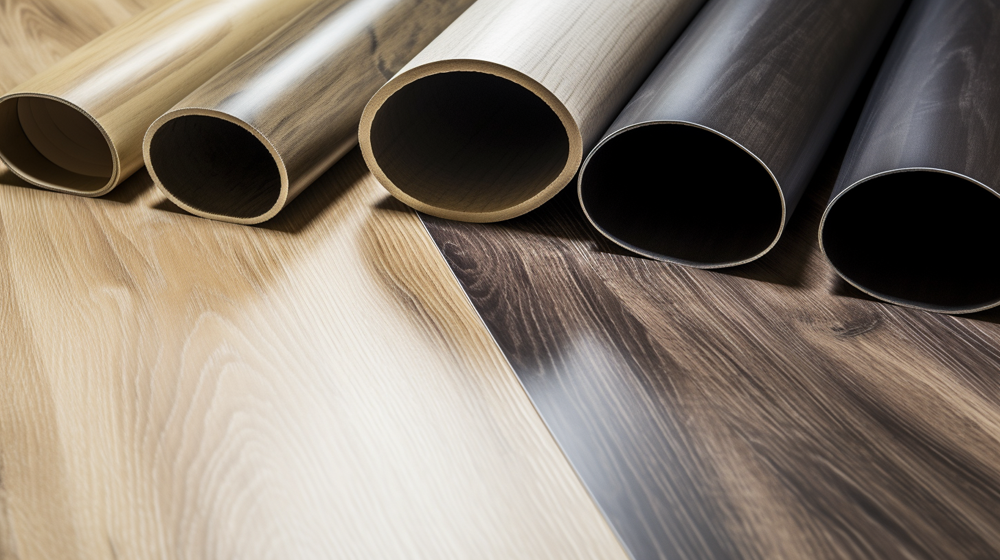
By taking into account these elements, you can select the vinyl flooring thickness that is ideal for your requirements and take pleasure in gorgeous, long-lasting floors for years to come.
The remainder of this article will go into greater detail about these factors and offer you practical suggestions and guidance for picking the ideal thickness for your vinyl flooring. Whether you’re a DIYer or working with a professional installer, you’ll find everything you need to make an informed decision and achieve beautiful, long-lasting floors.
Importance of choosing the right thickness for vinyl flooring
Choosing the right thickness for your vinyl flooring is important for several reasons:
- Durability: The thickness of your vinyl floor can affect how long it lasts and how resistant it is to damage. Thick floors are a better option for high-traffic areas because they can resist greater foot traffic, scratches, and other sorts of damage.
- Comfort: Thicker vinyl flooring can provide more cushioning and comfort underfoot, which can be especially important in areas where you spend a lot of time standing or walking.
- Sound absorption: Thicker vinyl flooring can also provide better sound absorption, helping to reduce noise levels in your home.
- Conditions of the subfloor: The state of your subfloor may also have an impact on the thickness of your vinyl flooring. A thicker vinyl floor may be required if your subfloor is damaged or uneven to stop long-term harm.
- Appearance: The thickness of your vinyl flooring can also impact its appearance. Thicker floors can provide a more luxurious, high-end look, while thinner floors may be more budget-friendly.
Overall, selecting the right thickness for your vinyl flooring is crucial for achieving the right balance of durability, comfort, and aesthetic appeal. By taking into account factors such as traffic, subfloor conditions, and personal preferences, you can make an informed decision and enjoy beautiful, long-lasting floors.
Standard thickness levels for vinyl flooring
Here are some specifications of common thickness options for vinyl flooring:
- 2mm vinyl flooring: This is the thinnest option available and is typically used for low-traffic areas such as closets or guest rooms. It’s also a more affordable option.
- 3mm vinyl flooring: This thickness is a step up from 2mm and offers slightly more durability and resistance to wear and tear. It’s still a relatively thin option, however, and may not be suitable for high-traffic areas.
- 4mm vinyl flooring: This is a thicker option that provides more cushioning and comfort underfoot, as well as greater durability. It’s a good choice for moderate-traffic areas such as living rooms, dining rooms, and bedrooms.
- More thickness choices: Other thickness choices for vinyl flooring include 5mm, 6mm, and even thicker possibilities. These thicker floors offer even more comfort and durability, making them a terrific option for high-traffic areas like kitchens, entryways, and hallways.
It’s important to note that these specifications can vary depending on the brand and type of vinyl flooring. Always check the manufacturer’s specifications to ensure you’re selecting the right thickness for your needs.
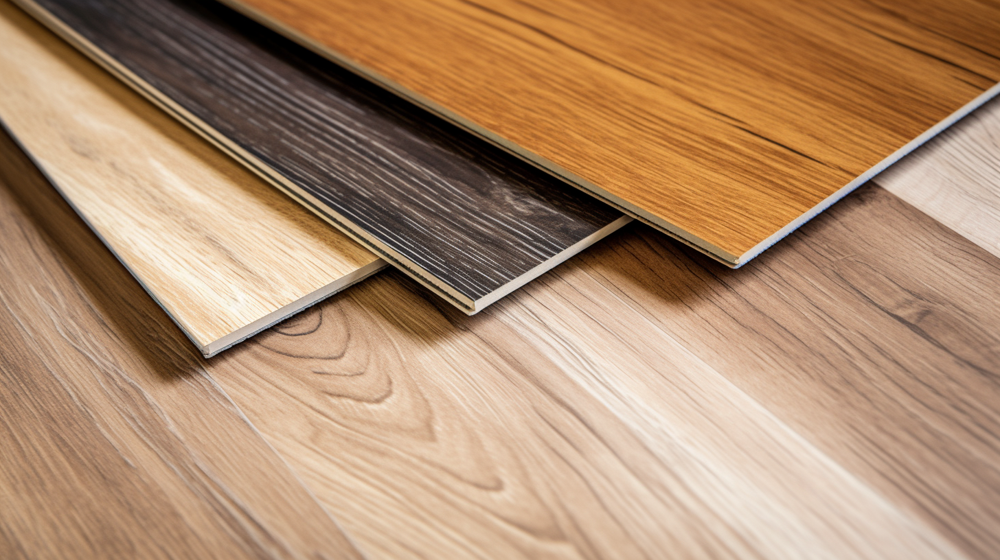
Factors to Consider When Choosing vinyl flooring Thickness
Foot traffic levels in the room
When selecting the ideal vinyl flooring for a room, it is important to take into account the foot traffic levels of the space. The heavier the foot traffic, the thicker your vinyl should be. Thicker planks are sturdier and more resistant to wear and tear due to their higher durability. Generally speaking, vinyl floors with a thickness range of 2mm-5mm can handle light residential use whereas those with a 6-8mm thickness are suitable for heavy commercial use. Additionally, vinyl floors that have an embossed texture are also recommended for areas with high foot traffic as they provide added traction and grip. With these factors in mind, you can ensure that you make the right decision when selecting which type of vinyl flooring will best suit your needs.
Subfloor condition and type
When selecting vinyl flooring, it is important to consider the condition and type of subfloor that is being covered. Generally speaking, if you are working with a new concrete slab or plywood subfloor, thinner vinyl flooring may be suitable. Thinner products range from 2 mm up to 5 mm in thickness and can provide good stability for these relatively smooth surfaces.
On the other hand, if you are covering an older, rougher subfloor such as particle board or an existing tile floor, a thicker product may be necessary. These thicker products have extra strength and stability due to their increased thickness of 6 mm or greater. The added thickness also helps to minimize any irregularities in the underlying surface layer. Additionally, a thicker product can provide additional cushioning, making it a comfortable surface to walk on.
To choose the proper thickness for your needs, consider the state and kind of the subfloor being covered while choosing vinyl flooring. Your new vinyl flooring installation may provide years of comfort and beauty with the right selection and installation.
Installation method (glue-down vs. floating)
When selecting a vinyl flooring system, it is important to consider installation methods and thickness. Glue-down installations are the most common for thicker luxury vinyl planks (LVP) of 6mm or more while floating systems tend to be used with thinner LVP planks of 2mm to 6mm. Thicker LVP is more durable since it can withstand heavy foot traffic and its textured surface helps hide scratches and other signs of wear and tear. In addition, thicker planks offer increased stability, which is a major factor in installation success. Thinner vinyl planks, on the other hand, may not last as long or be as resistant to dings and scuffs, but they are perfect for simple installs due to their smaller weight. To make the greatest option for your space, take into account installation needs as well as performance requirements when choosing the thickness of your vinyl flooring system.
Desired appearance and texture of the flooring
The thickness of vinyl flooring is a key factor that affects the overall durability and appearance of your space. It also determines how comfortable it will feel underfoot. Thicker vinyl flooring tends to be more resilient and long-lasting, offering superior sound absorption, insulation, and foot cushioning. More durable than thinner choices, thicker vinyl floors can have a softer appearance and feel. When choosing the best product for their needs, many homeowners prefer thicker vinyl flooring because of these factors. With all this in mind, you should carefully consider the desired appearance and texture of your space before deciding on the thickness of your vinyl flooring. Doing so can ensure you get the perfect look and feel for years to come!
Budget considerations
Those with limited funds might be tempted to pick the vinyl flooring option with the thinnest thickness when making their decision. It is crucial to keep in mind, nevertheless, that thinner vinyl flooring could be more vulnerable to wear and tear damage or even liquid spills and stains. Additionally, thinner options are also generally less durable than thicker ones, meaning they won’t stand up as well over time and may require more frequent replacement. Therefore, when selecting vinyl flooring for a home or business space it is important to weigh both budget considerations and durability to make an informed decision. Taking into account both of these factors will ensure that you get the best quality product for your money. Ultimately, finding the right balance between budget and quality will result in a vinyl flooring purchase that meets both your financial requirements and long-term needs.
Benefits and Drawbacks of Different Thickness Levels
| Thinner Vinyl Flooring |
Thicker Vinyl Flooring |
| Cheaper |
More durable |
| Easier to install |
Offers better insulation |
| Suitable for low-traffic areas |
Can handle heavy foot traffic |
| Requires less subfloor preparation |
Provides better soundproofing |
| More flexible |
Resistant to wear and tear |
| Easy to replace |
Better for high-moisture areas |
| Good for temporary flooring solutions |
Offers better cushioning |
| Often available in more design options |
Better for uneven subfloors |
| Can be installed over existing flooring |
Provides a higher quality look and feel |
| Can be cut and shaped to fit any space |
Offers better protection against spills |
Advantages of thinner vinyl flooring
There are several advantages to choosing thinner vinyl flooring:
- A more budget-friendly alternative for homeowners is thinner vinyl flooring because it is often less expensive than thicker ones.
- Easier installation: Thinner vinyl flooring can be easier to install than thicker options, as it is lighter and more flexible. This can be especially helpful if you plan to install the flooring yourself.
- Suitable for low-traffic areas: Thinner vinyl flooring is appropriate for rooms or closets that see less foot traffic. It can also be a good choice for temporary flooring solutions, such as in a rental property.
- Compatibility with existing flooring: Thinner vinyl flooring is often easier to install over existing flooring, as it is less likely to create height discrepancies between rooms.
Although thinner vinyl flooring might not provide the same level of comfort or durability as thicker choices, it can still be a fantastic solution for some rooms in the house. You can decide whether thinner vinyl flooring is the best option for your space by taking your needs and budget into account.
Advantages of thicker vinyl flooring
There are several advantages to choosing thicker vinyl flooring:
- Increased durability: Thicker vinyl flooring is more resilient to wear and tear over time than thinner choices, making it more durable. This makes it a great choice for high-traffic areas of the home.
- Enhanced comfort: Thicker vinyl flooring provides more cushioning and comfort underfoot, making it a good choice for areas where you spend a lot of time standing, such as a kitchen or laundry room.
- Better sound absorption: Thicker vinyl flooring can help to reduce noise levels in the home, making it a great choice for multi-level homes or apartments.
- Higher-end look: Thicker vinyl flooring can provide a more luxurious, high-end look, and may be available in a wider range of patterns and colors.
- Greater subfloor compatibility: Thicker vinyl flooring can be a good choice for areas with uneven or damaged subfloors, as it can better conceal minor imperfections.
While thicker vinyl flooring may come with a higher price tag, it can be a great investment for homeowners who want durable, long-lasting flooring that looks and feels great. By carefully considering your needs and preferences, you can select the right thickness of vinyl flooring for your space and enjoy beautiful, comfortable floors for years to come.

Disadvantages of both thin and thick vinyl flooring options
While both thin and thick vinyl flooring options have their advantages, they also come with some potential disadvantages. Here are some things to keep in mind:
| Thinner Vinyl Flooring |
Thicker Vinyl Flooring |
| Less durable |
More expensive |
| Offers less insulation |
Harder to install |
| May show imperfections in the subfloor |
Can feel too rigid or stiff |
| Offers less cushioning |
May require additional subfloor preparation |
Disadvantages of thin vinyl flooring:
- Limited durability: Thin vinyl flooring may not be as durable as thicker options and may be more prone to scratches, dents, and other types of damage.
- Limited comfort: Thin vinyl flooring may not offer as much cushioning or comfort underfoot as thicker options, which can be an issue in areas where you spend a lot of time standing or walking.
- Limited sound absorption: Thin vinyl flooring may not provide as much sound absorption as thicker options, which can be a concern in multi-level homes or apartments.
- Limited subfloor compatibility: Thin vinyl flooring may not be suitable for areas with uneven or damaged subfloors, as it may not be able to adequately conceal imperfections.
Disadvantages of thick vinyl flooring:
- Costlier: Thicker Vinyl flooring tends to be more expensive than thinner flooring, which might be a factor for homeowners on a budget.
- Installation can be more difficult with thick vinyl flooring since it may need more preparation and tools than thinner options.
- Limited compatibility with some types of flooring: Thick vinyl flooring may not be compatible with some types of existing flooring, which can be an issue if you’re looking to install it over an existing floor.
- Limited availability: Some patterns and colors of vinyl flooring may not be available in thicker options, which can limit your design choices.
By carefully weighing the pros and cons of both thin and thick vinyl flooring options, you can make an informed decision and select the right thickness for your needs and budget.
The durability, comfort, and general aesthetic of your floors can all be affected by the vinyl flooring thickness you choose. By considering factors such as foot traffic levels, subfloor conditions, and personal preferences, you can select the perfect thickness for your needs and enjoy beautiful, long-lasting floors for years to come.
 By taking into account these elements, you can select the vinyl flooring thickness that is ideal for your requirements and take pleasure in gorgeous, long-lasting floors for years to come.
The remainder of this article will go into greater detail about these factors and offer you practical suggestions and guidance for picking the ideal thickness for your vinyl flooring. Whether you’re a DIYer or working with a professional installer, you’ll find everything you need to make an informed decision and achieve beautiful, long-lasting floors.
By taking into account these elements, you can select the vinyl flooring thickness that is ideal for your requirements and take pleasure in gorgeous, long-lasting floors for years to come.
The remainder of this article will go into greater detail about these factors and offer you practical suggestions and guidance for picking the ideal thickness for your vinyl flooring. Whether you’re a DIYer or working with a professional installer, you’ll find everything you need to make an informed decision and achieve beautiful, long-lasting floors.


 By taking into account these elements, you can select the vinyl flooring thickness that is ideal for your requirements and take pleasure in gorgeous, long-lasting floors for years to come.
The remainder of this article will go into greater detail about these factors and offer you practical suggestions and guidance for picking the ideal thickness for your vinyl flooring. Whether you’re a DIYer or working with a professional installer, you’ll find everything you need to make an informed decision and achieve beautiful, long-lasting floors.
By taking into account these elements, you can select the vinyl flooring thickness that is ideal for your requirements and take pleasure in gorgeous, long-lasting floors for years to come.
The remainder of this article will go into greater detail about these factors and offer you practical suggestions and guidance for picking the ideal thickness for your vinyl flooring. Whether you’re a DIYer or working with a professional installer, you’ll find everything you need to make an informed decision and achieve beautiful, long-lasting floors.



